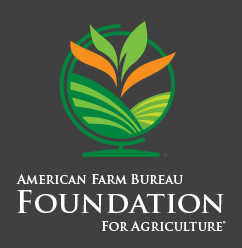Common Questions About Agriculture – Answered!
Synthetic fertilizers are not allowed in certified organic products, but select pesticides are allowed. The USDA National Organic Program (NOP) oversees organic certification. Organic producers must follow a strict process for production and processing of products. But organic does not mean “without pesticides.” Natural pesticides and synthetic pesticides are allowed in some cases. The NOP requirements provide a list of synthetic substances that may be used in organic production as long as these do not contaminate crops, soil or water. Chlorine and hydrogen peroxide are examples of some allowable synthetic substances allowed in organic production.
Synthetic fertilizers are not allowed in certified organic products, but select pesticides are allowed. The USDA National Organic Program (NOP) oversees organic certification. Organic producers must follow a strict process for production and processing of products. But organic does not mean “without pesticides.” Natural pesticides and synthetic pesticides are allowed in some cases. The NOP requirements provide a list of synthetic substances that may be used in organic production as long as these do not contaminate crops, soil or water. Chlorine and hydrogen peroxide are examples of some allowable synthetic substances allowed in organic production.
